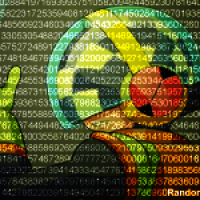

It’s hard to explain. A lot of it is about vibes and focus over the last several years.
- There’s a popular suspicion that, rather than fixing issues, Dems allowed them to persist so they could campaign on them during an election year.
- Dems’ platform in 2016 was: Hillary’s more competent. In 2020: Trump’s a menace. In 2024: Trump’s a menace. Meanwhile, people cared more about putting food on the table, not dying of the plague, and war crimes. Sure, welfare was part of Dems plans and platform, but it weren’t the core message.
- Related to #2, people felt unheard, ignored, and taken for granted. We’ve been losing faith in a 2-party system, where neither side has to be good, they just have to threaten that the other side is worse. Well, wehn people feel they have nothing to lose, they put a bull in the china shop and hope they wind up on top when the dust settles.
Bernie’s being a bit harsh in saying Dems didn’t try. Republicans blocked their efforts. But there’s also a feeling that they didn’t care all that much. At the end of the day, they’re career politicians, padding their pockets with corporate donations while demanding starving citizens vote for them because the other guy would be somewhat less palatable. And I guess Trump’s honesty about being apathetic and money-grubbing is more appealing than Dems’ feigned innocence and solidarity.





There’s also the alternative “grills” vs. bouys" pair.